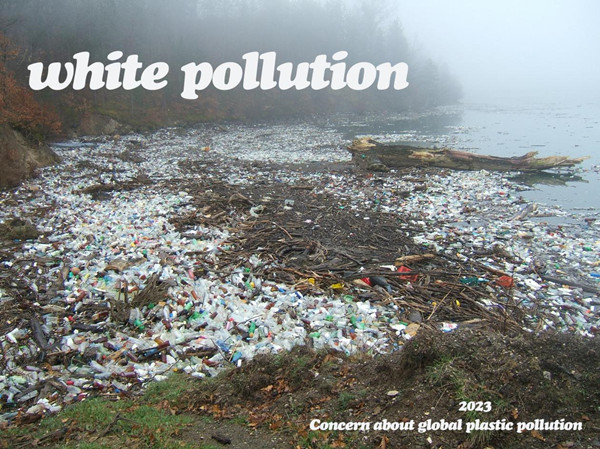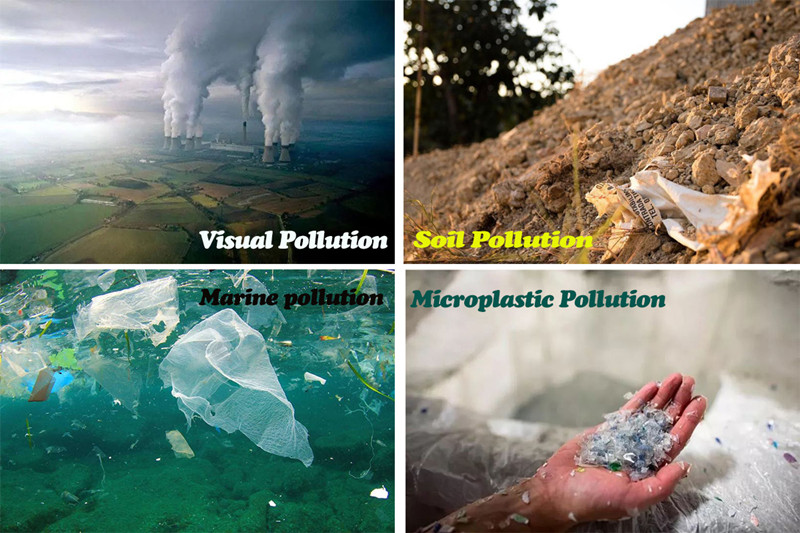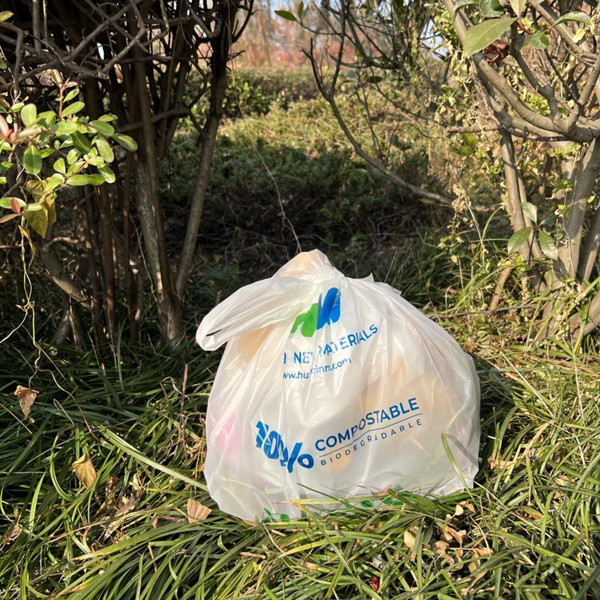
Plastic pollution is also known as white pollution, white pollution is an image of waste plastic pollution of the environment phenomenon, refers to polystyrene, polypropylene, polyvinyl chloride and other polymer compounds made of bags, agricultural film, disposable tableware, plastic bottles, and other plastic products after the use of plastic products are discarded as solid waste, due to the random littering, difficult to degrade and deal d by the pollution. with the ecological environment and the landscape caused by the pollution.

I. Visual Pollution
Discarded plastics bring bad visual stimulation to people, affecting the overall aesthetics of cities and scenic spots, destroying the cityscape and landscape, thus causing "visual pollution". According to statistics, global plastic consumption is growing at an annual rate of 8%, and in 2030 the annual consumption of plastic will reach more than 700 million tons.
II. Marine pollution
Plastic garbage enters the ocean to pollute the living environment of animals, and a large number of marine organisms die every year due to accidental ingestion of plastic fragments. According to statistics, there are at least 276 species of marine organisms all over the world that have suffered deaths due to accidental ingestion of plastic garbage.
III.Soil Pollution
Plastic residues in farmland will affect the absorption of water and nutrients by crops, inhibit the growth and development of crops, and cause crop yield reduction. Large amounts of landfill plastic waste will pollute groundwater. Due to the small density and large volume of plastic film, the landfill will soon be filled, and the ability to deal with the waste will be reduced; on the other hand, due to the soft foundation of the landfill, bacteria, viruses and other harmful substances in the garbage can easily penetrate into the ground, polluting the groundwater and endangering the surrounding environment.
IV. Microplastic Pollution
Due to the difficult degradability of plastics, microplastic particles that exist in the environment for a long period of time may enter the human body through ingestion and respiration, thus affecting human health.
First . Enhance the awareness of environmental protection of plastic ban.
Starting from themselves, actively support and publicize the policy of banning plastic, and strive to be the propagandist and practitioner of plastic pollution control.
Second, set up a good consumer concept.
When dining out, do not use disposable plastic knives, forks, spoons and other tableware, try to bring their own reusable tableware.
Third, develop green shopping habits.
Re-carrying cloth bags, heavy vegetable baskets, re-use durable shopping bags, refusing to use disposable plastic bags.
Fourth, choose green express delivery products.
When receiving and sending express delivery, reduce the use of non-biodegradable plastic bags, disposable plastic woven bags, non-biodegradable plastic tape, etc., and promote the use of recyclable express delivery packaging products.
Fifth, consciously participate in waste classification.
Do not arbitrarily pile up and dump plastic waste, try to do garbage classification, improve the efficiency of resource utilization of plastic waste.
Sixth. Use biodegradable, compostable plastic bags

Environmentally friendly: Biodegradable plastics can be decomposed under natural conditions, thus reducing pollution to the environment and the impact of plastic waste on the ecosystem.
Saving resources: Biodegradable plastics can be produced from biomass, plant starch and other natural resources, which is more environmentally friendly and can save resources compared to plastics made from non-renewable resources such as oil.
Safe and healthy: Biodegradable plastics do not contain toxic and harmful substances, which are harmless to human health, and do not release harmful substances during use, which is safer and healthier.
